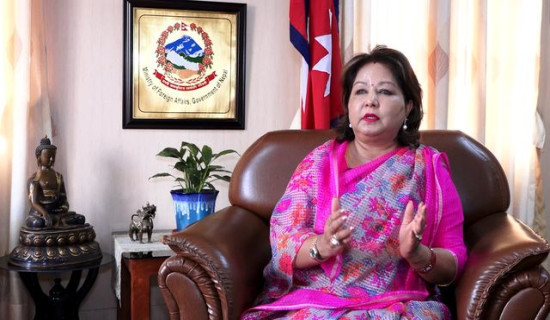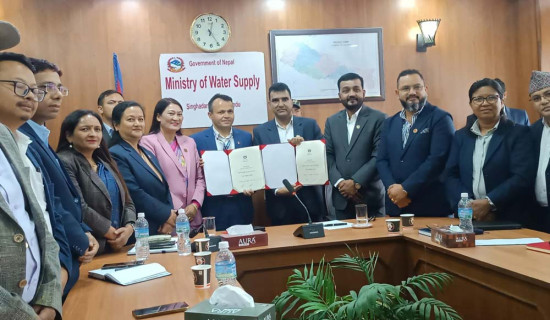- Friday, 9 May 2025
Be A Traveler, Not Tourist
Parmeshwar Devkota
Frankly speaking, a tourist hardly perceives cultures, customs and traditions of a place s/he visits. That's because s/he cannot pay much attention to the terrains, environment and vivid aspects of the life in the area owing to the shortage of time, money and other constrains. In this regard, tourism looks like a crash programme. In this age of technology, a tourist books the hotel or lodge in the place s/he is visiting, takes a bus or an air ticket to get there, and fulfils the purpose of visit without knowing much about the internal aspects and multiple dimensions of life there.
As for example, some friends of mine who hail from the eastern part of the country and who have visited Rara Lake and Khaptad twice or thrice in their forty-five years of life, but assume that Surkhet is the representational place of those places culturally. In reality, however, it is not the case. The western party of the country is significantly wide in comparison to the eastern part and also vivid topographically and culturally. It is also richer in dialects. Unlike political divisions, the western part can be divided into four pockets from the dialect point of view - Doteli, Achhami, Jumli and Salyani dialects.
So, the people who pay religious pilgrimage or joy-visits to tourist places of the country also lack the social, lingual and cultural realities of the places they visit. Sort trips, hectic trips, religious pilgrimages, meeting-seminar visits do not draw the attention of the visitors to the terrain, flora and fauna, anthropological and sociological aspects of the society there.
But travel is a different trip. If you travel to a place, you spend sufficient amount of time and resources with certain commitments in the mind. Travel to a certain place is done to know the first hand information of the area. So, you know flora-fauna, terrain, even cultures and customs there in the long run. Traveling to certain place is to pay a visit without booking the hotels and without other arrangements. It entails reaching to the houses of the local people and asking them for a corner of the house to stay all night and for food they eat on a regular basis. This way not only one gains the first hand information of the people and the place but also gets to live their life. So, travelling is risking life in an effort to get to know the ins and outs of the life.
Though we visit many places, whether on pilgrimage or to seek jobs, there's no denying that we have been poor travelers. In an encouraging shift, though, the trend of tourism has grown in popularity in the country. If tech-savvy Nepali youths of today with bright prospect in every respect embark on an endeavor to transform tourism into travel, we will be at the level of European voyagers sometimes in the future. Examples abound: Vasco da Gama, a Portuguese, began his travel to India in the year 1497 AD, winning the confidence of the then king. Similarly, Marco Polo, an Italian merchant, who was not a tourist but a traveler, traveled to China and recorded details of economic power, social bindings and other strengths of that country in his book, ‘The Book of the Marvels of the World’.

















